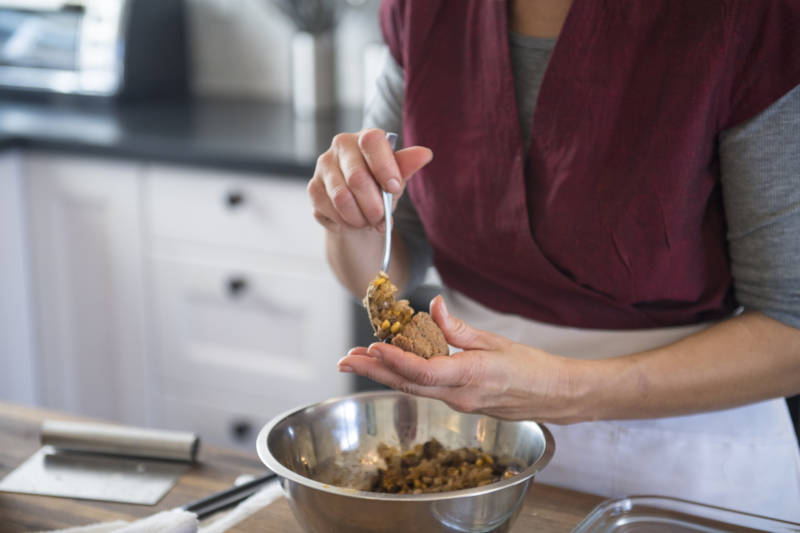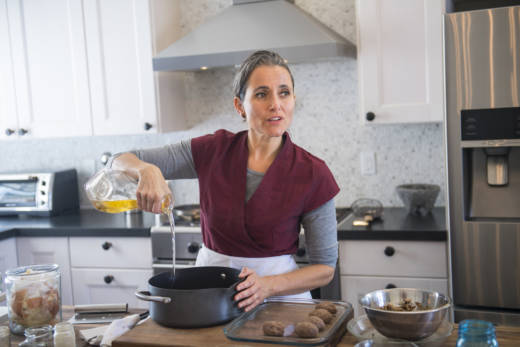The Trump Administration recently granted nearly 7,000 Syrians temporary permission to stay in the US for at least another 18 months. The civil war in Syria still rages, though you might not know it, given its absence from our news headlines here. How to stir up interest and compassion in the West? One San Francisco Bay Area theater company has an idea that involves two onions, a quarter cup of pine nuts and one pound of beef.
Like the Syrian refugees, Oh My Sweet Land has no fixed address. The one-woman show, written by Palestinian playwright Amir Nizar Zuabi, plays in kitchens, restaurants and community spaces, put on by Golden Thread Productions, a theatre company that focuses on Middle Eastern stories.
So it was that a few months ago, during the first run of the play in the Bay Area, two dozen people sat down in fold out chairs in the breakfast nook of a private home in Palo Alto home. Two feet away, on the other side of the kitchen counter, actress Nora el Samahy, began to cook kibbeh: fried bulgur wheat balls filled with meat and spices. (Recipes vary regionally, but they’re popular throughout the Middle East.)
“In the recipes, they say, take an onion. What kind of an onion? Big? Small? An onion is not a unit of measurement. It’s just like saying take a man. But which man?”
Right away, we’re transported like Proust to intensely personal memories of watching someone else prepare dinner as we chat in the kitchen.

El Samahy plays a Syrian-German woman who relates the story of her affair with a Syrian refugee. The character never gives her name, but we learn a lot about kibbeh.


